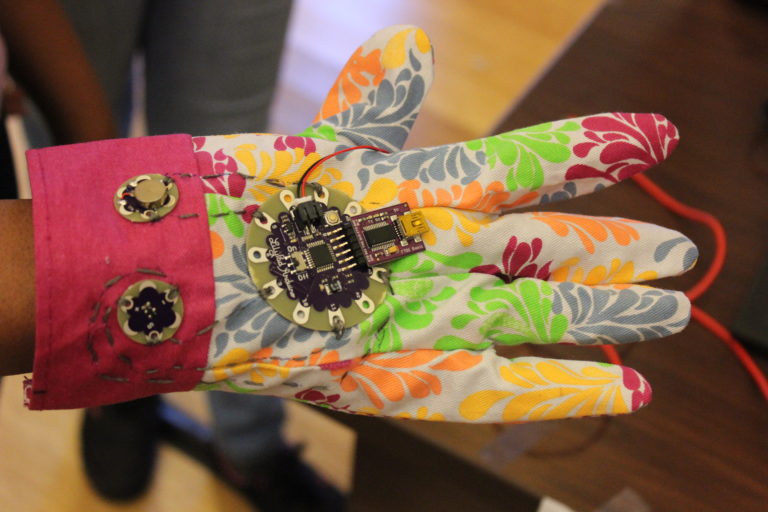Wearable Device Challenge
- Who: Middle and high school students
- When: April 15, 2020
- Where: North Carolina State University, Raleigh, NC
- Deadline to register teacher and teams: February 15, 2020
“Fashion sense” takes on a whole new meaning in North Carolina State University’s Wearable Device Challenge for middle and high school students.
Hosted by the National Science Foundation-funded Nanosystems Engineering Research Center for Advanced Self-Powered Systems of Integrated Sensors and Technologies (ASSIST), the contest asks teams to follow the engineering design process to create a health-monitoring device for a person, animal, or both, based on environmental factors.
The challenge integrates concepts from the One Health Initiative and the Grand Challenges of Engineering – specifically health informatics. 
ASSIST education director Elena N. Veety, who recently earned a Ph.D. in electrical engineering from NC State, won the American Society for Engineering Education’s 2017 Best Paper Award for her research on the contest as a way to boost STEM learning. “Within this prompt, we consistently see an amazing range of creative and critical issues that participants choose to address,” she and her coauthors wrote. Students tackled such diverse, real-world problems as the health and safety of farm workers and farm animals, first-responder exposure to danger, hydration and UV exposure for athletes, and monitoring of chronic conditions like sleep apnea, asthma, and seizures.
The program, which includes teacher resources and a series of Wearable Device Challenge lesson plans, also fosters such key professional skills as teamwork and communication while exposing students to the engineering design process, electronic circuits, computer programming, sensors, energy harvesting, prototyping, and other technical topics.
Teams upload their designs and all supporting materials to Google for preliminary judging by graduate research assistants, professors from NC State, and industry experts.
High school students are asked to design a working prototype of their device along with an ad campaign and poster.
Middle school students must design a 3-D model or prototype of their device along with an ad campaign and poster.
They design their devices using platforms like Arduino Unos, Lilypads, Littlebits circuit set, or TI Sensortag and must be able to articulate how future iterations of their design can be self-powered. See student resources for links to videos and other helpful information pertaining to the One Health Initiative.
Register no later than February 15, 2020
Filed under: Competitions and Contests, K-12 Outreach Programs, Special Features
Tags: Competitions for Students, Contest, Nanosystems Engineering Research Center for Advanced Self-Powered Systems of Integrated Sensors and Technologies (ASSIST), North Carolina State University, One Health Initiative, wearable technology








